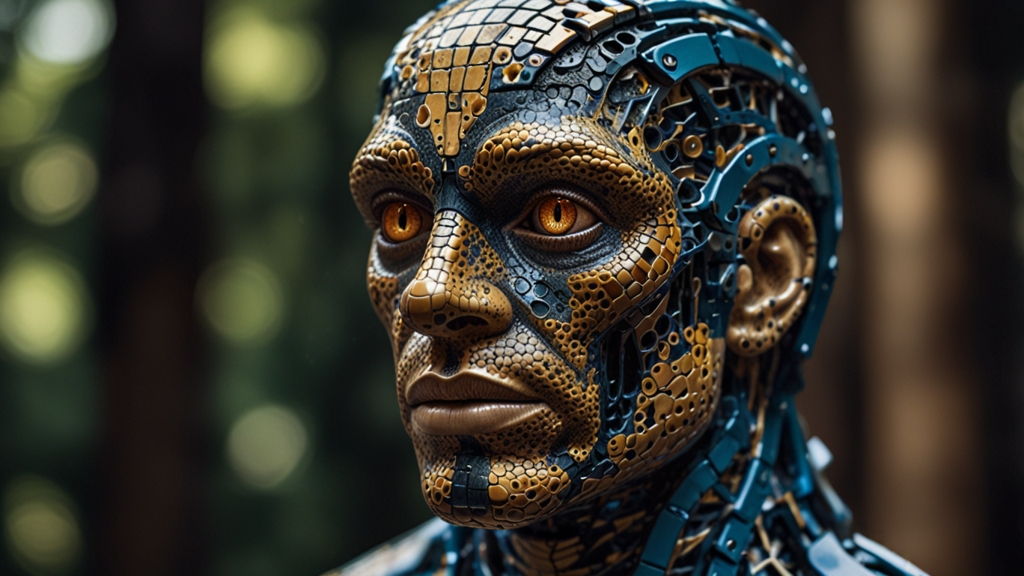The Battle of Beliefs: Myth, Faith, and the Creation Story
Throughout human history, the quest to understand the origins of life and the universe has given rise to a rich tapestry of creation stories. These narratives, often woven into the fabric of cultural, religious, and philosophical traditions, offer a glimpse into the myriad ways that societies have sought to explain the mysteries of existence. The interplay between myth and faith in these creation stories represents a profound battle of beliefs, illuminating the diverse perspectives on the genesis of our world.
Myth as a Vessel of Understanding
Myths are more than mere stories; they are vessels of collective understanding, encapsulating the worldview of a society. In ancient cultures, creation myths were integral to explaining the universe's origins, serving as foundational texts that provided a sense of order and meaning.
Consider the ancient Greek myth of Gaia and Uranus. According to this myth, Gaia, the personification of Earth, emerged from chaos and gave birth to Uranus, the sky. Their union produced the Titans, who played pivotal roles in shaping the world. This story reflects the Greek understanding of the cosmos, emphasizing the interplay between earth and sky as fundamental forces of creation.
Faith and the Role of Divine Revelation
While myths are products of cultural imagination, faith-based creation stories often center around divine revelation. These narratives are seen as sacred truths imparted by a higher power, forming the cornerstone of religious belief systems.
The Judeo-Christian creation story, for example, is rooted in the Book of Genesis. According to this account, God created the heavens and the earth in six days, culminating in the creation of humankind in His image. This story is not just a myth but a matter of faith for billions, providing a moral and existential framework through which believers understand their place in the universe.
"In the beginning, God created the heavens and the earth." - Genesis 1:1
The Intersection of Myth and Faith
Myth and faith are not mutually exclusive; rather, they often intersect and influence each other. In many cases, what begins as myth can evolve into a faith tradition, and vice versa. The line between the two is fluid, shaped by cultural, historical, and sociopolitical contexts.
For instance, in Hinduism, the creation story involves various myths that have become integral to the faith. The Rigveda, one of the oldest Vedic texts, describes the creation of the world through a cosmic sacrifice performed by the god Purusha. This myth, rich in symbolism and allegory, is deeply intertwined with Hindu religious practices and philosophical teachings.
Modern Perspectives and Scientific Narratives
In contemporary times, scientific narratives have emerged as another lens through which we understand creation. The Big Bang theory, evolution, and cosmology offer empirical, evidence-based explanations for the origins of the universe and life. These scientific perspectives often challenge traditional creation stories, leading to what some describe as a "battle of beliefs."
"Science without religion is lame, religion without science is blind." - Albert Einstein
However, for many, science and faith are not at odds but rather complementary. The synthesis of scientific inquiry and spiritual insight can provide a more holistic understanding of creation. This integrative approach acknowledges the value of myth and faith while embracing the advancements of modern science.
The Enduring Power of Creation Stories
Creation stories, whether mythic, faith-based, or scientific, continue to captivate the human imagination. They shape our understanding of existence, inform our values, and inspire our quest for knowledge. In the battle of beliefs, there is no singular answer to the mystery of creation. Instead, there is a diverse tapestry of narratives, each contributing to our collective quest to comprehend the origins of our world.
As we navigate the complexities of myth, faith, and science, let us appreciate the richness of creation stories. They are, after all, a testament to humanity's enduring curiosity and our profound desire to make sense of the universe we inhabit.







